STATEHOUSE REPORT | ISSUE 19.50 | DEC. 11, 2020

TRANQUIL WATER VISTA. Here’s a look at a peaceful scene at Lake Murray in the Midlands. Photo via Unsplash.
 BIG STORY: PSC flexes new muscle by rejecting Dominion growth plan
BIG STORY: PSC flexes new muscle by rejecting Dominion growth plan
NEWS BRIEFS: Bill seeks to reverse outdated employment law on disabled
LOWCOUNTRY, Ariail: Plastic
COMMENTARY, Brack: Beasley sets great S.C. example for world to see
SPOTLIGHT: ACLU of South Carolina
FEEDBACK: On private actions and Santee Cooper
MYSTERY PHOTO: View from below
PSC flexes new muscle by rejecting Dominion growth plan
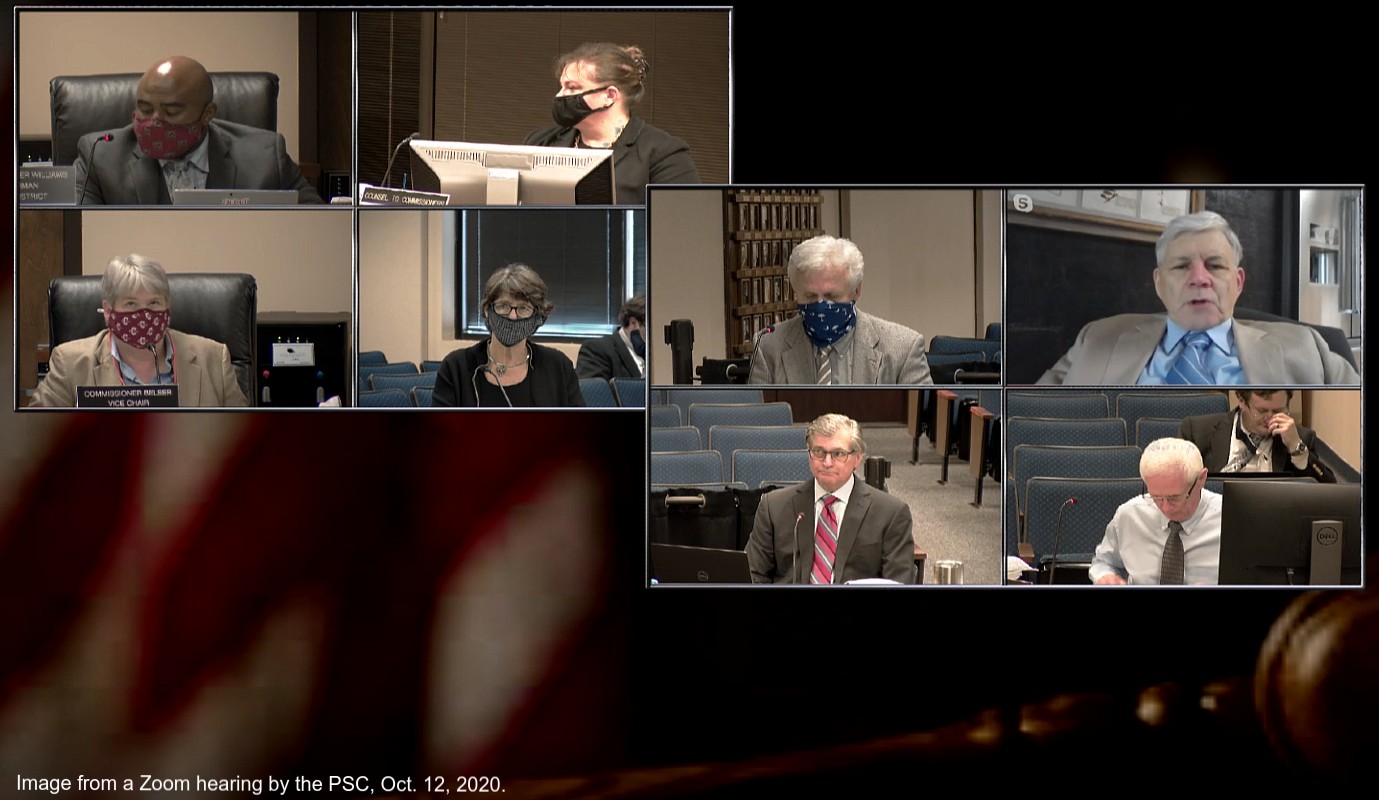
By Rodney Welch, special to Statehouse Report | The S.C. Public Service Commission (PSC) on Wednesday sent Dominion Energy back to the drawing board in what is being interpreted as a new spirit of oversight.
Under the 2019-passed Energy Freedom Act, the state’s electric utilities were required to make a three-year Integrated Resource Plan (IRP) for managing future growth and to explore adopting sources of renewable energy and solar expansion.
The PSC, whose seven members have been appointed in the last two years, unanimously rejected the plan. The motion, made by PSC Chairman Justin Williams of Columbia, requires the utility to make significant modifications to its draft plan, remodel the cost of its proposed plans, and expand the availability of solar and renewable energy, among other things.
For at least one environmentalist, the order was a bold move for a new PSC.
“This shows that we have a Dominion that’s doing things the same old status-quo way that they’ve been doing for the last decade,” said John Tynan of Conservation Voters of South Carolina, “and we have a new Public Service Commission that’s not OK with the status quo.”
A setback for the utility
For the utility, the PSC decision was a setback they promised to overcome.
 “Dominion Energy diligently strived to satisfy all requirements set forth in the new law and to address other parties’ comments during this proceeding in order to provide the most cost-effective, safe and reliable path to a sustainable energy future for our customers,” said spokesperson Rhonda O’Banion. “We will thoroughly review the Public Service Commission’s final order on the IRP and make necessary revisions in a timely manner. We remain committed to providing our customers with the safe, reliable service they count on us for every day.”
“Dominion Energy diligently strived to satisfy all requirements set forth in the new law and to address other parties’ comments during this proceeding in order to provide the most cost-effective, safe and reliable path to a sustainable energy future for our customers,” said spokesperson Rhonda O’Banion. “We will thoroughly review the Public Service Commission’s final order on the IRP and make necessary revisions in a timely manner. We remain committed to providing our customers with the safe, reliable service they count on us for every day.”
The Dominion plan’s lack of renewable energy sources was the focus of a three-day PSC hearing in mid-October. The intricate aspects and issues of Dominion’s proposed IRP were thoroughly hashed out between utility officials and attorneys for several environmental groups.
In the IRP’s opening summary, Dominion claimed to be receptive to expanding clean energy. The utility “intends to utilize more power generated from clean energy sources,” the summary read. The plan also reflected Dominion’s commitment “to clean energy in the energy efficiency programs offered to customers and in the probable modifications to the Company’s electric transmission and distribution grid which will facilitate the growth of clean energy solutions while assuring that energy continues to be provided in a safe, reliable, and affordable manner.”
Following the direction of the Energy Freedom Act, also known as Act 62, Dominion drafted eight different plans. Each alternative used six energy resources which Dominion engineer James Neely testified represented a “reasonable range of fuel types or technologies currently available for providing additional generation.” The plan that the company eventually chose was determined to be the most cost-efficient, it said. But, as Neely conceded during testimony, the company did not consider adding renewable energy before 2026, which sources said may have doomed the filing before the PSC on Wednesday.
Also, as became clear during testimony, the IRP did not promise much. While state law requires a plan, that doesn’t mean an “action plan.” As Dominion’s Economic Resource Commitment Manager Eric Bell noted, that would imply that the IRP “is the driving document behind actually executing the plans that are proposed.”
Dominion’s proposed IRP, he later testified, “actually doesn’t propose any changes for that three-year time frame.”
Instead, he spoke vaguely of the IRP as a “snapshot” that simply shows where Dominion is at a given time.
“A do-nothing” plan”

PSC Commissioner Tom Ervin of Greenville grew frustrated during the October hearing when talk turned to updating the IRP.
“You’re already staring at a potential update of a plan that really is not a plan,” he said. “How can you update something that’s really not in place yet?”
“Dominion is essentially asking this commission to approve a `do-nothing’ plan” Sierra Club attorney Dorothy Jaffe said during the hearing, which has “virtually no clean energy for the next two decades and continues to over-rely on fossil fuels without having performed a retirement analysis to justify this decision.”
Kate Mixson, a staff attorney with the Southern Environmental Law Center working with the S.C. Coastal Conservation League and the Southern Alliance for Clean Energy, said the problem with Dominion’s proposed IRP was that it didn’t closely follow the state’s new Energy Freedom Act (EFA)
“They have to fairly evaluate a full range of resources available to them,” she said, “and we think the EFA is very explicit that that includes demand side resources like energy efficiency, that it includes solar, that it includes battery storage. And we don’t think that the Dominion IRP, as it was filed, fairly evaluated those resources.”
But while opponents doubted the utility’s sincerity, there was also testimony indicating the company had made a good-faith effort.
![]() Philip Hayet, an engineer with the Georgia engineering firm of J. Kennedy and Associates who spoke on behalf of the S.C. Office of Regulatory Staff, testified to the PSC that he found Dominion’s original plan problematic, but said the utility had since corrected previous errors and accepted other suggestions.
Philip Hayet, an engineer with the Georgia engineering firm of J. Kennedy and Associates who spoke on behalf of the S.C. Office of Regulatory Staff, testified to the PSC that he found Dominion’s original plan problematic, but said the utility had since corrected previous errors and accepted other suggestions.
“The company addressed all of the 39 items that we identified, in one way or another,” he said. “Of the 19 items we recommended that should be addressed immediately, the company considered and addressed all but one in its updated IRP analysis.”
Just prior to the vote, PSC commissioner Carolyn “Carolee” Williams of Charleston thanked Dominion for its cooperation throughout a very long process.
The goal “is to produce the most reasonable and prudent IRP going forward,” she said. “But I wanted to note that that’s going to be true year after year, and each year refinements are going to be made in the IRP that will make it a better visionary and a more reliable planning tool.”
Rodney Welch is a freelance reporter who lives in Elgin, S.C.
- Have a comment? Send to: feedback@statehousereport.com
Bill seeks to reverse outdated employment law on disabled

Staff reports | An Easley Republican has prefiled a bill to adopt a measure that would reverse outdated laws that funnel South Carolina adults with intellectual disabilities into low-paying jobs, reporter Parker Milner wrote in this week’s issue of the Charleston City Paper.
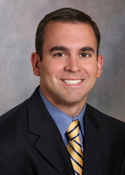
S.C. Rep. Neal Collins, R-Easley, filed a bill three years ago to adopt so-called Employment First policies. He prefiled the bill this week for consideration in the coming session.
“Originally, we introduced the bill to encourage government agencies to consider hiring adults with disabilities,” said Collins, who explained that the bill doesn’t have hiring mandates, but would require a commission to regularly update the General Assembly on the employment status of South Carolina adults with disabilities.
The state House of Representatives voted to create a study committee to evaluate the need for new employment policies in South Carolina. The committee’s May 2019 report found that South Carolina employers are struggling to fill positions, and Employment First policies could address industry needs by providing a framework that would help remove employment barriers for adults with intellectual disabilities.
The report found, “The first step is to adopt legislation that establishes that South Carolina is an Employment First state and establish a commission that can help guide us in the right direction.”
Collins said he hoped for the bill to move forward this year.
“Hopefully we’ll have some movement, but you never know in the legislative world,” he said.
When lawmakers prepare to take up an Employment First proposal, they’ll find the numbers speak for themselves. Just 32.6 percent of the more than 700,000 South Carolina adults with intellectual disabilities are employed, one of the lowest rates in the country, according to the Employment First Study Committee Report conducted in May 2019.
“We have the sixth-highest unemployment rates for people with disabilities, so there’s a lot of other states that are doing better than us,” said Sandy Jordan, director of employment programs for AbleSC, a nonprofit helping adults with disabilities live independently. Read the full story.
Also in recent news:
![]() S.C. among states challenging presidential election results. S.C. Attorney General Alan Wilson announced Wednesday the state is joining with 16 other Republican attorneys general in filing an amicus brief supporting a lawsuit attempting to challenge presidential election results in Georgia, Michigan, Pennsylvania and Wisconsin. The lawsuit claims those states ignored federal and state election laws, skewing the results toward President-elect Joe Biden. More: WLTX. On Friday, The Post and Courier editorialized that Wilson was undermining the foundations of democracy by participating in the lawsuit.
S.C. among states challenging presidential election results. S.C. Attorney General Alan Wilson announced Wednesday the state is joining with 16 other Republican attorneys general in filing an amicus brief supporting a lawsuit attempting to challenge presidential election results in Georgia, Michigan, Pennsylvania and Wisconsin. The lawsuit claims those states ignored federal and state election laws, skewing the results toward President-elect Joe Biden. More: WLTX. On Friday, The Post and Courier editorialized that Wilson was undermining the foundations of democracy by participating in the lawsuit.
S.C. lawmakers look at breaking up DHEC. The sprawling S.C. Department of Health and Environmental Control — which regulates water usage, issues permits for hazardous sites, and is handling the coronavirus pandemic among its health responsibilities — could be broken up under a plan proposed Wednesday by state Senate President Harvey Peeler. More: The State
State bill seeks to address gender, racial pay gaps. A state bill backed by the Women’s Rights and Empowerment Network seeks to codify a level playing field in work pay among women and African Americans, who are paid at lower rates than white men for the same work, according to supporters. More: WLTX
COVID-19 vaccine could be approved by Saturday. An authorization of a COVID-19 vaccine by the U.S. Food and Drug Administration would be the beginning of a complex distribution plan that could last months, coordinated by health authorities, hospitals and pharmacies. The emergency approval could come as early as Saturday. Great Britain and Canada approved the vaccine earlier this week. Meanwhile, South Carolina health officials reported 1,883 new cases of the coronavirus Thursday alongside 12 additional confirmed deaths. Of 8,828 tests reported, 21.3 percent were confirmed positive.
Unemployment benefits set to expire for over 100,000 S.C. residents. An initial wave of roughly 24,000 people losing financial aid by the end of thee this week is expected as part of the expiration of unemployment benefits for more than 100,000 by the end of the year. More: The Post and Courier.
State’s high court affirms decision against governor’s aid spending. In a unanimous affirmation, the S.C. Supreme Court ruled Wednesday that spending $32 million in federal coronavirus relief to provide tuition grants for private schools is against the state’s constitution. It was the second time the court has rebuked the move. More
First Black U.S. House member commemorated in exhibit. Joseph Rainey represented South Carolina in the U.S. House of Representatives in the 1870s. He was the body’s first Black member. This year marks the 150th year of Black representatives in the House, and Rainey has been commemorated in a congressional exhibit. More: The Post and Courier.
- Have a comment? Send to: feedback@statehousereport.com
Plastic
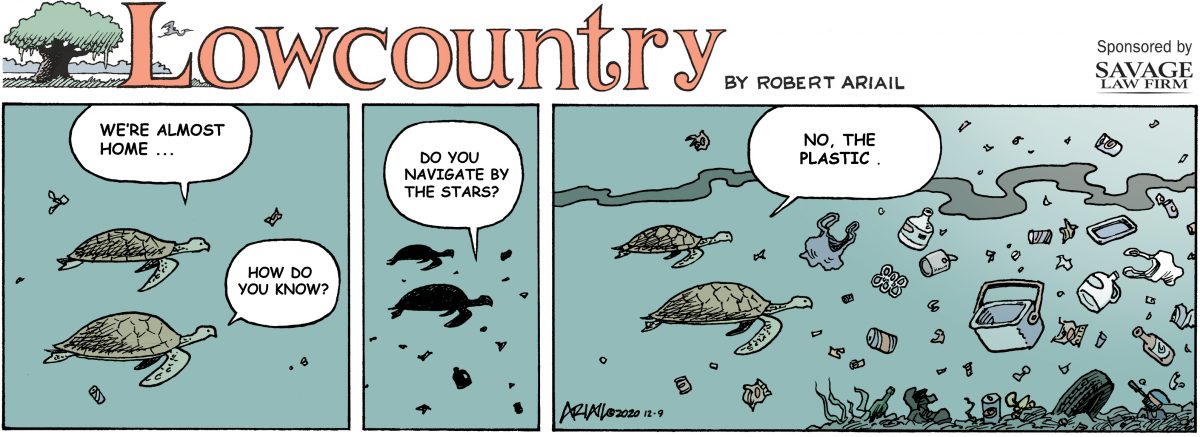
Enjoy this week’s cartoon by Robert Ariail, republished from our sister newspaper, the Charleston City Paper. Love it? Hate it? What do you think: feedback@statehousereport.com.
Beasley sets great S.C. example for world to see
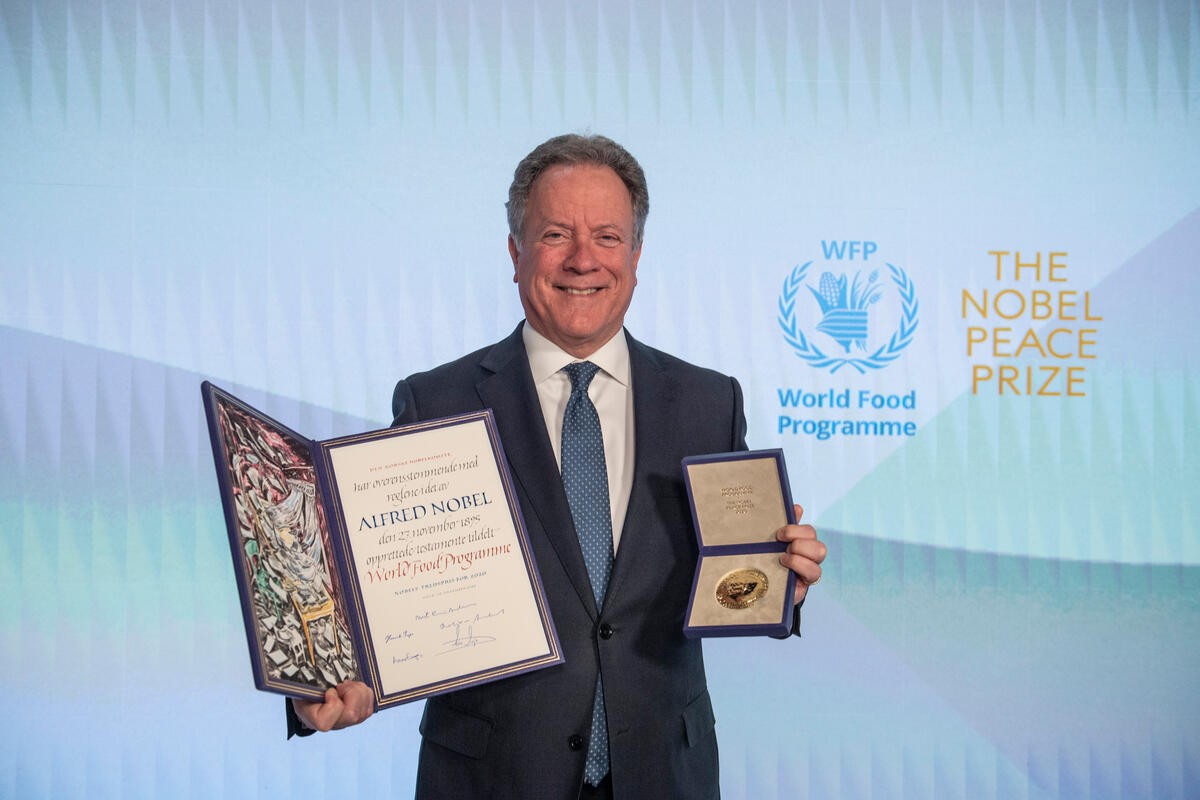
By Andy Brack, editor and publisher | All South Carolinians should be proud of the display of leadership and the example set by former Gov. David Beasley when he accepted the Nobel Peace Prize on behalf of the United Nations World Food Programme.
“Waking up in this wealthy, modern, technologically advanced world, it’s hard to imagine us going through a famine like that,” Beasley said during a Thursday ceremony in Rome. “But my tragic duty today is to tell you: Famine is at humanity’s doorstep. For millions and millions of people on earth. Failure to prevent famine in our day will destroy so many lives and cause the fall of much we hold dear.”
Beasley, 63, served as South Carolina’s governor from 1995 to 1999. Eighteen years later, after a business career mixed with missionary work, he became the executive director of the WFP, the world’s largest humanitarian agency. It helps 100 million people in 88 countries to battle hunger every year.
In the past, we’ve described Beasley as the Palmetto State’s version of Jimmy Carter for serving as a leader making a larger difference on the world stage after years in public office.
“All of the darkness of the world can’t put out the smile on a face,” Beasley told us in 2017 just months after taking the job that jets him from hunger-sapped country to European capitals in search of funding to help more people. “This job brings humanity down to the core level. When you see a hungry person, you don’t see a Democrat or a Republican, a black or white. You see a brother or sister who is struggling to survive. That transcends politics. All you want to do is help them.”
On Thursday, Beasley reinforced the WFP’s humanitarian mission by representing 19,000 people who work to alleviate hunger across the world.
“Thank you for acknowledging our work of using food to combat hunger, to mitigate against destabilization of nations, to prevent mass migration, to end conflict and… to create stability and peace,” he said in Rome. “We believe food is the pathway to peace.”
Unfortunately, there’s much more work in the business he and his colleagues are in. Some 600 million people go to bed hungry every night, he said. Of those, 270 million are “marching toward starvation” and 30 million — more than everyone who lives in Texas — depend on the U.N. program for 100 percent of their survival.

In his acceptance speech, Beasley recalled the words of Dr. Martin Luther King Jr., who won the Nobel Peace Prize in 1964.
“Like Dr. King, from a very young age, I learned this teaching from Jesus of Nazareth, as he taught from the Torah: ‘Love your neighbor as yourself,’” Beasley said. “I have come to understand that a better translation of what Jesus actually said was ‘Love your neighbor as your equal. Think for a moment what that really means.
“Imagine every woman, man, girl and boy we share this planet with is our equal and if we would just love them as such. Imagine what that would do to war, to conflict, to racism, to division, and to discrimination of every kind.”
He said he is heartened because his agency helped “100 million of my equals – my neighbors” stay alive and avert famine.
“What tears me up inside is this: this coming year, millions and millions and millions of my equals – my neighbours, your neighbours – are marching to the brink of starvation.”
Pathways to avert hunger is fueled by money from wealth, which continued to grow by trillions of dollars as the world reeled from the coronavirus pandemic. He said another $5 billion would save 30 million people from famine.
“’I don’t go to bed at night thinking about the children we saved. I go to bed weeping over the children we could not save. And, when we don’t have enough money, nor the access we need, we have to decide which children eat and which children do not eat, which children live, which children die….
“In the spirit of Alfred Nobel, as inscribed on this medal – ‘peace and brotherhood’ – let’s feed them all.”
Thank you, governor, for reminding us about the fragility of humanity around the world during this season of giving. Keep up the great work.
Andy Brack is editor and publisher of Statehouse Report. His column also is published in the Charleston City Paper, Florence Morning News, Greenwood Index Journal, The (Seneca) Journal, Camden Chronicle Independent and Hartsville Messenger. Have a comment? Send to: feedback@statehousereport.com.
ACLU of South Carolina
 The public spiritedness of our underwriters allows us to bring Statehouse Report to you at no cost. This week’s spotlighted underwriter is the American Civil Liberties Union. The ACLU of South Carolina is dedicated to preserving the civil liberties enshrined in the U.S. Constitution and Bill of Rights. Through communications, lobbying and litigation, the ACLU of South Carolina works to preserve and enhance the rights of all citizens of South Carolina. Foremost among these rights are freedom of speech and religion, the right to equal treatment under law, and the right to privacy.
The public spiritedness of our underwriters allows us to bring Statehouse Report to you at no cost. This week’s spotlighted underwriter is the American Civil Liberties Union. The ACLU of South Carolina is dedicated to preserving the civil liberties enshrined in the U.S. Constitution and Bill of Rights. Through communications, lobbying and litigation, the ACLU of South Carolina works to preserve and enhance the rights of all citizens of South Carolina. Foremost among these rights are freedom of speech and religion, the right to equal treatment under law, and the right to privacy.
Private actions, not governments, are better for energy, more
To the editor:
![]() All too often, there are articles written, like yours, that go on and on about how government should do this and do that. Your article is no different.
All too often, there are articles written, like yours, that go on and on about how government should do this and do that. Your article is no different.
As a conservative, I want clean air, clean water, less trash. I also believe in a free market economy. There are numerous renewable projects being completed each year around the country, mostly driven by corporate sustainability pledges made to their shareholders. The only government involvement that truly can have impacts is by incentivizing through tax credits or other financial motivators. I believe home-based solar can make significant impacts, but it is still too cost-prohibitive, even with tax credits that are available (also we need technology to improve to increase efficiency). Also, you mention the government is in control of energy production. Why is the buyback for electricity so low for home-based solar production?
I am also a land owner and pride myself on land stewardship. It takes a significant investment to manage property and develop habitat for plants and wildlife. I plant thousands of trees every few years and I can assure you my “carbon footprint” is zero. What do you do to effect change on an individual level, other than rant about the government should do more?
Yes, it drives me crazy to have to clean plastic trash off my roadside and from my creeks. Once again, corporate sustainability pledges can drive change, not government mandates.
— Terry Burmeister, Florence, S.C.
Wants Santee Cooper sold
To the editor:
Just read this: “They [Legislators] need to stop kicking the can down the road and give it [Santee Cooper] a chance to clean up its act. Literally. Whatever happens, Hancock said, “We want to ensure there’s some level of Public Service Commission accountability and oversight with the South Carolina General Assembly.” Two comments:
- Santee Cooper already has had the chance to clean up its act with both its relationship with the legislature and its clean energy transition plans. It is failing on both. Things will only get worse if the legislature decides not to sell it.
- A Senate subcommittee heard from a bond expert earlier this year who said that the PSC [Public Service Commission] cannot be responsible for setting Santee Cooper’s rates. The bond contracts require the utility to set rates to insure the bonds are paid.
— Frank Knapp, Columbia, S.C.
Send us your thoughts
We love hearing from our readers and encourage you to share your opinions. But to be published, you’ve got to provide us with contact information so we can verify your letters. Letters to the editor are published weekly. We reserve the right to edit for length and clarity. Comments are limited to 250 words or less. Please include your name and contact information.
-
- Send your letters or comments to: feedback@statehousereport.com
A view from below

Here’s a view of a building in a South Carolina forest, but where is it? Send your guess to feedback@statehousereport.com. And don’t forget to include your name and the town in which you live.
Our previous Mystery Photo
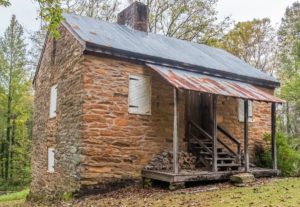
Our Dec. 4 photo, “Old stone cabin,” stumped one reader, a geologist who thought the stones were “meta-mudstones of the Carolina Slate Belt. Figuring that cabin builders use what’s available locally, I’d place this cabin in or near the Slate Belt counties — McCormick, Greenwood, Saluda, Newberry, Farfield, Lancaster, Chester, or York. The trees and topography also indicate that this cabin is well above the fall line.”
He was pretty close because the old cabin is the Oconee Station blockhouse near Walhalla, as related by several readers, including George Graf of Palmyra, Va.: “Originally a military compound and later a trading post, Oconee Station State Historic Site offers both recreational opportunities and a unique look at 18th and 19th century South Carolina. Oconee Station, a stone blockhouse used as an outpost by the S.C. State Militia from about 1792 to 1799, and the William Richards House, are the only two structures that remain today.”
Allan Peel of San Antonio, Texas, shared that “However, according to the information provided by the South Carolina Department of Archives and History here, as well as information included as part of the application to the NRHP here, Oconee Station was actually “erected before 1760 to afford the few settlers nearby a measure of protection against numerous Cherokee Indians in the area. It was the last of three guardhouses built by Lt. Col. Archibald Montgomerie, who commanded English and Scottish troops in ill-starred 1762 attacks on Cherokees. The building marks the farthest point in South Carolina to which white settlers ventured prior to the Revolution, and is believed to have housed British soldiers, at least periodically, until after that war.”
Others who correctly identified the structure were Jay Altman of Columbia; Frank Bouknight of Summerville; Henry Eldridge of Tega Cay, Elizabeth Jones of Columbia; Keven Mertens of Greenville; and William Jennings.
A hat tip to reader Thomas Jacobsen in Alaska for providing the photo.
- Send us a mystery: If you have a photo that you believe will stump readers, send it along (but make sure to tell us what it is because it may stump us too!) Send to: feedback@statehousereport.com and mark it as a photo submission. Thanks.
ORDER NOW: Copies are in Lowcountry-area bookstores now, but if you can’t swing by, you can order a copy online today.
ABOUT STATEHOUSE REPORT
Statehouse Report, founded in 2001 as a weekly legislative forecast that informs readers about what is going to happen in South Carolina politics and policy, is provided to you at no charge every Friday.
Meet our team
- Editor and publisher: Andy Brack, 843.670.3996
- Special correspondent: Lindsay Street
Donate today
We’re proud to offer Statehouse Report for free. For more than a dozen years, we’ve been the go-to place for insightful independent policy and political news and views in the Palmetto State. And we love it as much as you do.
But now, we can use your help. If you’ve been thinking of contributing to Statehouse Report over the years, now would be a great time to contribute as we deal with the crisis. In advance, thank you.
Buy the book
Now you can get a copy of editor and publisher Andy Brack’s We Can Do Better, South Carolina! ($14.99) as a paperback or as a Kindle book ($7.99). . The book of essays offers incisive commentaries by editor and publisher Andy Brack on the American South, the common good, vexing problems for the Palmetto State and interesting South Carolina leaders.
More
- Mailing address: Send inquiries by mail to: 1316 Rutledge Ave., Charleston, SC 29403
- Subscriptions are free: Click to subscribe.
- We hope you’ll keep receiving the great news and information from Statehouse Report, but if you need to unsubscribe, go to the bottom of the weekly email issue and follow the instructions.
- Read our sister publications: Charleston City Paper (every Wednesday) | Charleston Currents (every Monday).
- © 2020, Statehouse Report, a publication of City Paper Publishing, LLC. All rights reserved.



Pingback: NEW for 12/11: PSC flexes; Beasley accepts; Employment law – Statehouse Report | Law News
Pingback: PSC flexes; Beasley accepts; Employment law - iEmpresarial